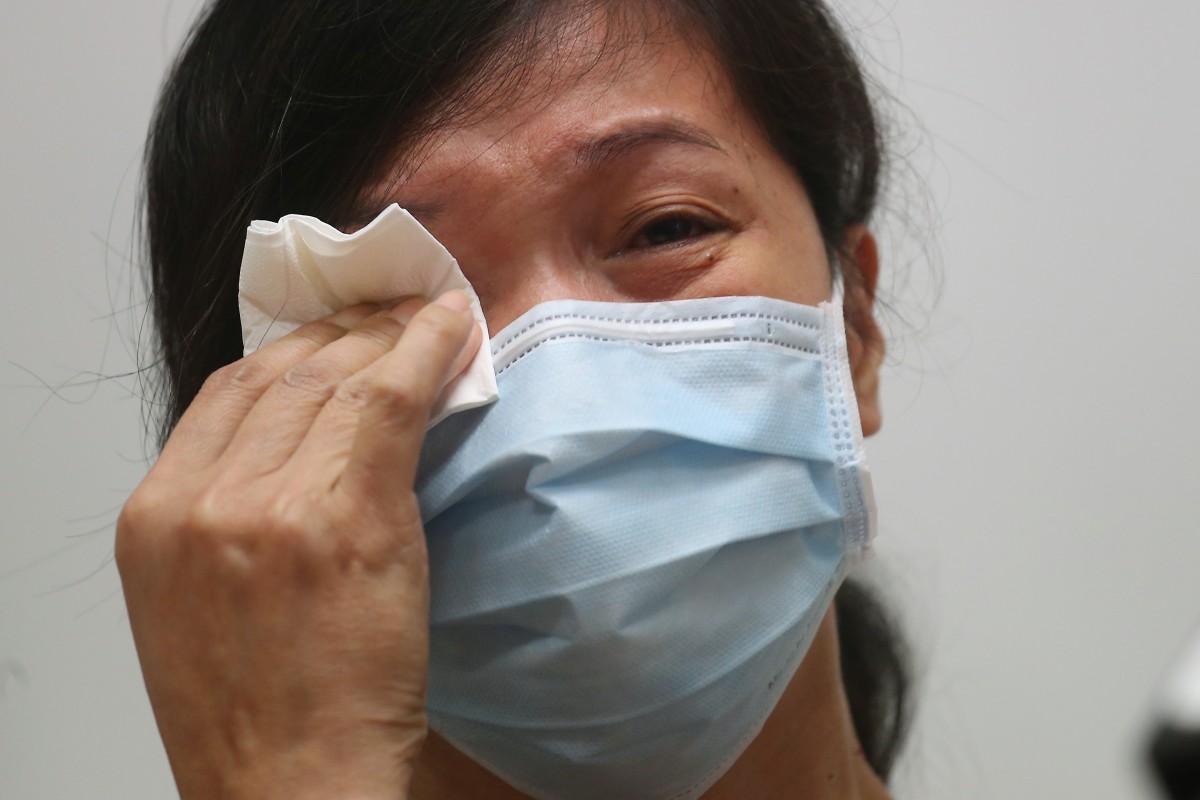
Organ donation: Would you do it?
A reader shares her thoughts as a Hong Kong teenager lies dying
 Jamella's mother weeps as she talks to media.
Jamella's mother weeps as she talks to media.Dear Editor,
I would like to express my opinion on the article ‘Mother's tearful plea for lung donor as daughter has just one more day to live’ on Young Post posted on September 28, 2015.
The poor 19-year-old girl, Jamella Mangali Lo, who has primary pulmonary hypertension with causes unknown will die within hours if no lung transplant can be carried out. She was having a meal with her mother in the photo, it all looked so normal, but the tears on her mother’s face told us that it is an urgent and nearly hopeless situation.
It reflects the seriously low organ donation rate in Hong Kong which is also relatively low around the world. More than 2 050 people are waiting for a organ transplants and many will die without ever finding a donor. That is not the fault of the patient. They cannot choose to avoid it. But can we prevent this?
Is it because we, Hongkongers, are not aware of the necessity of organ donation? The government have done some promotion already on TV programmes and advertisements on stands and leaflets in the streets. The promotion is all well and good, but there really is not enough chances for people to become involved in this scheme.
Traditionally people believe that a dead body should be kept as whole as possible. To get over this barrier, we need education. But that is a long-term solution. Meanwhile,the government and related organisations must provide chances for more people to understand the situation of people in need of organs, and encourage them to sign up to be a donor. We need to learn more, understand and finally do what we think is right, without being hindered by obstacles from our past.
I sometimes feel that I am too apathetic as I, just like the majority of people, will never stand up and help those whose stories make headlines. I have reasons. If I just donate my organs to those who need them, what happens when a friend or family member is in need? I won't have anything left for them.
Furthermore, the operations are dangerous, and it's too high a risk to take for a stranger. When the arrow is pointed at me, I seem to have many excuses, too many. But they are reasonable.
I don't mind my organs being donated once I am dead. So that is a bit of an improvement compared to the past few generations. This is because I have been educated.
Research and technology could help the situation. Medical researchers can discover and improve the technology to make human organs. I know there are ethical issues the needs to be tackled as the technology may need to get stem cells from an embryo, which is viewed as immoral.
Apart from making new organs, researchers should look at the cause of this disease. We still have not had a clear explanation of what caused it.
I know the methods I've mentioned are still too far away to help the girl who only has hours to live. Jamella, I cannot do anything for you. Please be tough and strong, for yourself.